Much like Facebook, Google has probably amassed a vast storehouse of data on you.

How vast? I downloaded my files from the platform just now (here’s how), and they weighed in at over 20 GB, or 20 billion bytes. That’s equivalent to a 12 million-page text file.
(By comparison, the complete works of Dickens as a text file weigh in at 1.7 MB, Dostoevsky at 0.8 MB, and Tolstoy 0.85 MB. Their combined lifetime output comes to 0.000017% of my Google file.)
When I asked Google for it late Monday afternoon, the files weren’t ready for download until 10:25 that evening.
WATCH: Is Google Maps affecting your brain?

Fortunately, there are easier, more digestible ways of getting an idea of what Google knows about you.
Here are some things to keep an eye out for:
Physical tracking
Does your phone track your location and send it to Google through the Google Timeline feature? You can easily find out here.
Mine did until recently. Here I am at various locations in an around Hamilton, Ont.:
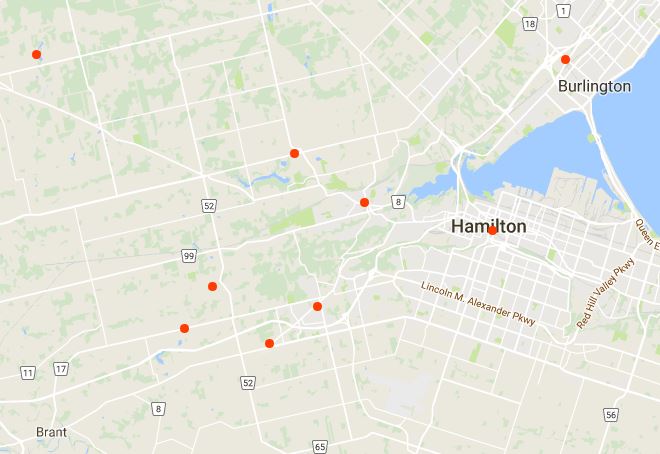
(I never meant to have this feature turned on. Readers may wonder why I didn’t turn it off after I discovered it in June of 2016. The simplest answer is that I actually thought I had.)
There are many disadvantages of Google Timeline, the most obvious being that anyone with access to your Google login credentials has access to a precise record of your movements, potentially going back years.

Get daily National news
On the back end, Google’s record of my movements (or rather my phone’s movements) comes in at 71 MB, or 41 Dickenses.
At exactly 3:04 p.m. on June 14 of last year, my phone and Google had a short conversation while I was at work. It went like this:
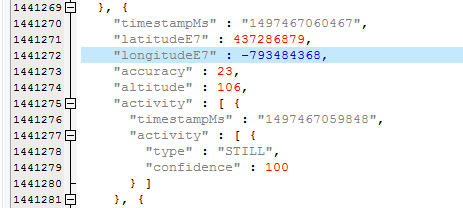
Here’s how to read this:
1497467060467 is an encoded timestamp. It can be translated here.
My location is: latitude 43.7286879, longitude -793484368, altitude 106m (above sea level), which is the Global News building in Toronto. It was probably correct that I was STILL, as opposed to ON_FOOT, IN_VEHICLE, ON_BICYCLE or more mysteriously TILTING, all of which also appear in the data.
WATCH: Wonder how Google Maps is able to show traffic patterns? Expert worried it could be invading your privacy

So far, my phone has reported my location to Google 200,080 times, or 276 times a day.
If you find Google’s tracking your location and you don’t want it to, here’s how to turn it off (‘pause’) and erase it properly:
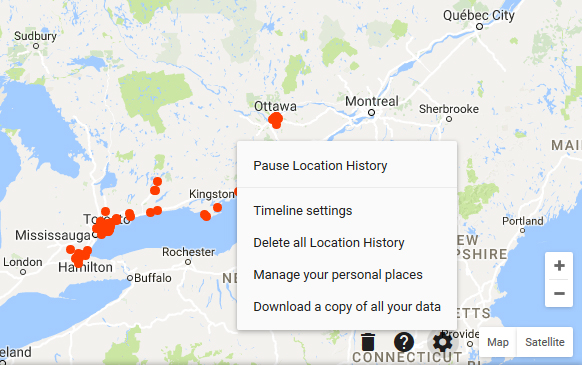
Search activity
Google tracks all the search activity and map viewing linked to your account, and will show it to you here. While I was researching the section above, Google was researching me:
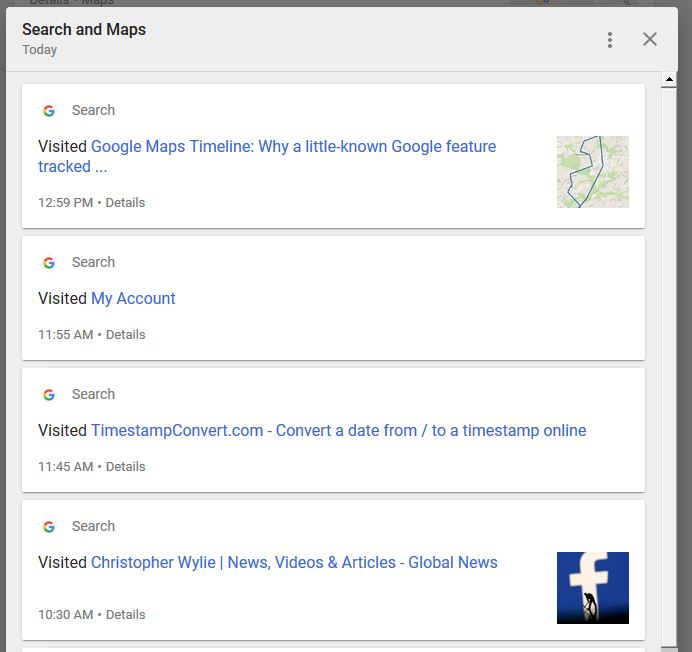
If you’d like to use Google’s search engine with more privacy than that, you can use it in a browser in which you’re not signed in or use an incognito window.
You can delete your search activity here, like this:
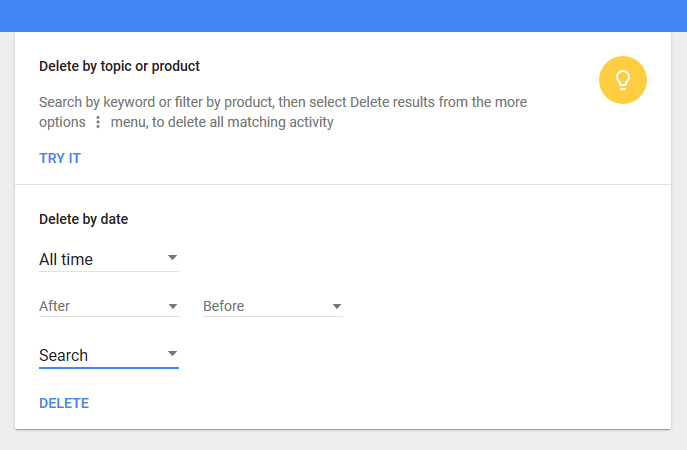
Your YouTube history
Google also stores your complete YouTube search history and viewing history.
You can delete it on the upper right of the history page (pause, then clear):
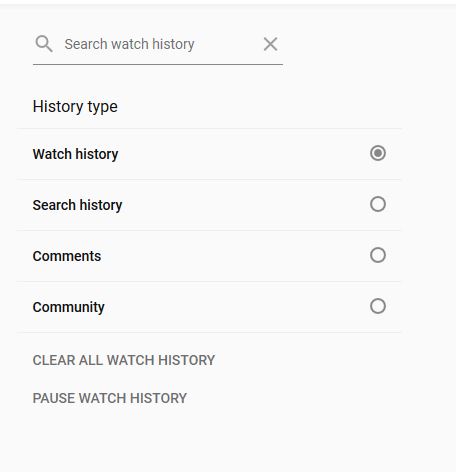
Gmail history
Your Gmail file includes all the mail you’d expect, and some you might not, like all your spam messages and all the messages you’ve deleted. Mine weighed in at 8.14 gigabytes.
Everything else
What other material is out there depends on how you use the platform. I don’t use Google Fit or Google Pay, for example, but all that data would be available if I did. Every site I’ve visited in Google News is there (12 of them on Dec. 28, 2016, apparently), as are all 76 books I’ve looked at in Google Books, each view dated and timestamped, and the complete text of a long-defunct blog from 2004.
WATCH: Privacy concerns mount at Toronto considers plans for high-tech community in the Portlands







Comments
Want to discuss? Please read our Commenting Policy first.